17th May 2023
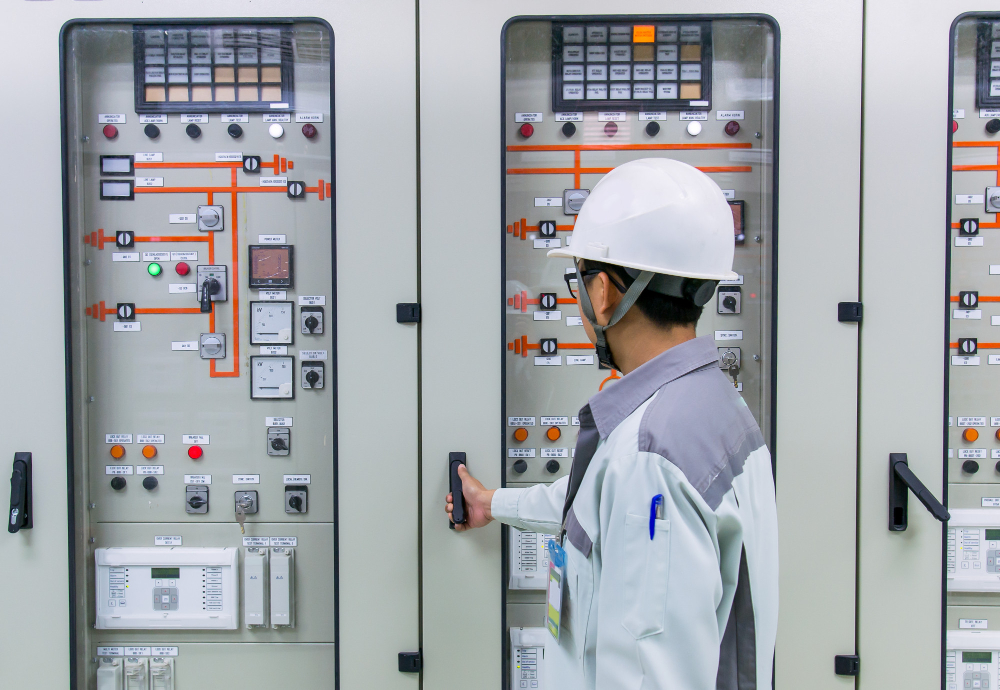
An electrical panel is the central hub for the distribution of electricity throughout a building. It’s responsible for managing the flow of electricity from the utility company and distributing it to the various circuits within the building. Understanding the electrical panel is crucial for any homeowner or building manager as it plays a vital role in maintaining the safety and functionality of the electrical system. This comprehensive guide to the electrical panel will cover everything you need to know about electrical panels, including their components, types, and how they work. By the end of this guide, you’ll have a better understanding of how to maintain your electrical panel, ensuring the safety and reliability of your electrical system.
Electrical panels are at the core of your home’s electrical system. Their duty includes disbursing electricity throughout, protecting appliances, and keeping appliances operational safely. Electrical panels come in different types. Let’s explore the types of electrical panels!
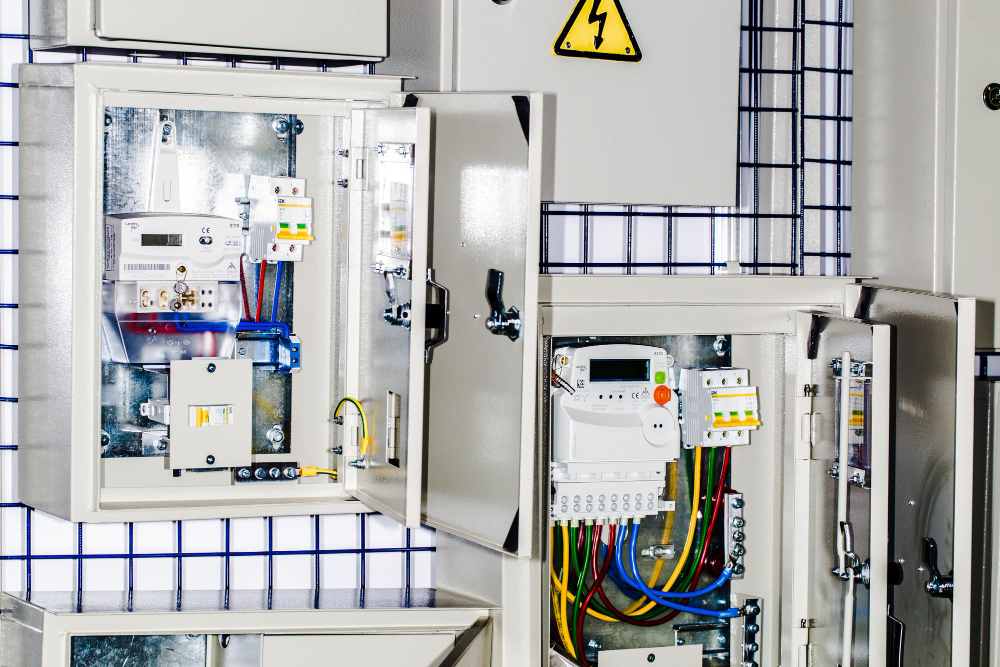
Control Panel: A control panel is an electrical panel that contains switches, indicators, and other devices for controlling and monitoring various electrical equipment. Control panels are commonly used in industrial settings, such as manufacturing plants, to control machinery and processes. They can also be found in commercial and residential settings for controlling lighting, HVAC systems, and other equipment.
PCC – Power Control Center: A power control center (PCC) is an electrical panel that houses motor control centers (MCCs) and other electrical equipment used to control the power supply to various industrial equipment. It is typically used in large industrial facilities, such as factories or power plants, and is responsible for distributing power to different sections of the facility.
MCC – Motor Control Center: A motor control center (MCC) is an electrical panel that contains a group of motor starters, overload relays, and other devices used to control and protect electric motors. MCCs are used in industrial settings to control and monitor the operation of large motors that drive machinery and other equipment.
MLDB – Main Lighting Distribution Board: A main lighting distribution board (MLDB) is an electrical panel that is used to distribute power to lighting fixtures throughout a building. It contains circuit breakers, fuses, and other devices to protect the electrical system and ensure that the lighting circuits are functioning properly.
An electrical panel, also known as a breaker box or distribution board, contains various components that work together to distribute and control electrical power throughout a building. Here are the main components of an electrical panel:
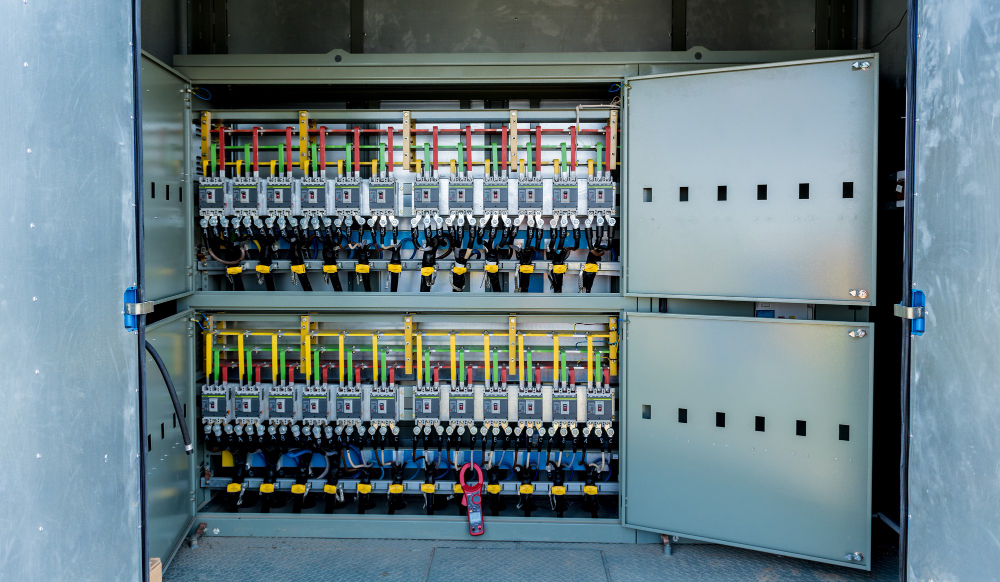
Main Circuit Breaker: This is the large breaker that controls the power supply to the entire panel. It is typically located at the top or bottom of the panel and can be turned off to shut off power to the entire building.
Bus Bars: Bus bars are metal bars that carry electricity through the panel. They distribute power to individual circuit breakers or fuses, which then supply power to specific circuits throughout the building.
Circuit Breakers: Circuit breakers are devices that automatically shut off power to a circuit if there is an overload or short circuit. They are typically located beneath the bus bars and can be reset by switching them off and then back on.
Fuses: Fuses are similar to circuit breakers in that they protect circuits from overloads and short circuits. However, fuses are one-time-use devices that must be replaced if they are blown.
Neutral and Ground Bars: The neutral bar is a metal strip that provides a connection point for the neutral wires from each circuit. The ground bar provides a connection point for the ground wires from each circuit. These bars are essential for ensuring that the electrical system is grounded properly, which helps prevent electrical shock and damage to electrical equipment.
Surge Protector: A surge protector is a device that protects electrical equipment from power surges, which can occur when there is a sudden increase in voltage. Surge protectors are typically installed at the electrical panel to protect the entire electrical system from power surges.
Labels: Labels are placed on the front of the panel to identify each circuit and its corresponding breaker or fuse. This makes it easy to locate and turn off power to specific circuits when necessary.
Selecting the right electrical panel for your building is an important decision that requires careful consideration. Here are some factors to consider when choosing the right electrical panel:
Capacity: The capacity of the electrical panel should be large enough to handle the electrical needs of your building. The panel should have enough circuit breakers or fuses to supply power to all the electrical equipment and appliances in the building.
Type: There are different types of electrical panels, such as control panels, power control centers, motor control centers, and main lighting distribution boards. Choose the type of panel that is most suitable for your specific application.
Voltage: The electrical panel should be designed to handle the voltage of your building’s electrical system. If the voltage is too high or too low, it can cause damage to the electrical panel and equipment.
Location: The location of the electrical panel should be easily accessible for maintenance and troubleshooting. It should also be located in a dry and ventilated area to prevent damage from moisture and heat.
Quality: Choose a high-quality electrical panel from a reputable manufacturer to ensure reliability and safety. Cheap and poorly made electrical panels can be dangerous and may not function properly.
Future expansion: Consider future expansion plans for your building when selecting an electrical panel. Choose a panel that has room for additional circuit breakers or fuses to accommodate future expansion.
Local codes and regulations: Be sure to comply with local codes and regulations when selecting an electrical panel. Consult with a licensed electrician or electrical engineer to ensure that your electrical system is safe and compliant with local codes.
Electrical panels are crucial for distributing and controlling power in buildings. This guide has covered the different types of electrical panels, their components, and factors to consider when selecting the right panel. Always prioritize safety, work with licensed professionals, and choose a panel that meets your building’s needs and local codes.
ZONZEN offers lockable handles and hasps that can be used to secure electrical panels. They also provide customized lock solutions for specific applications. These solutions provide an extra layer of security to protect the electrical system from unauthorized access.
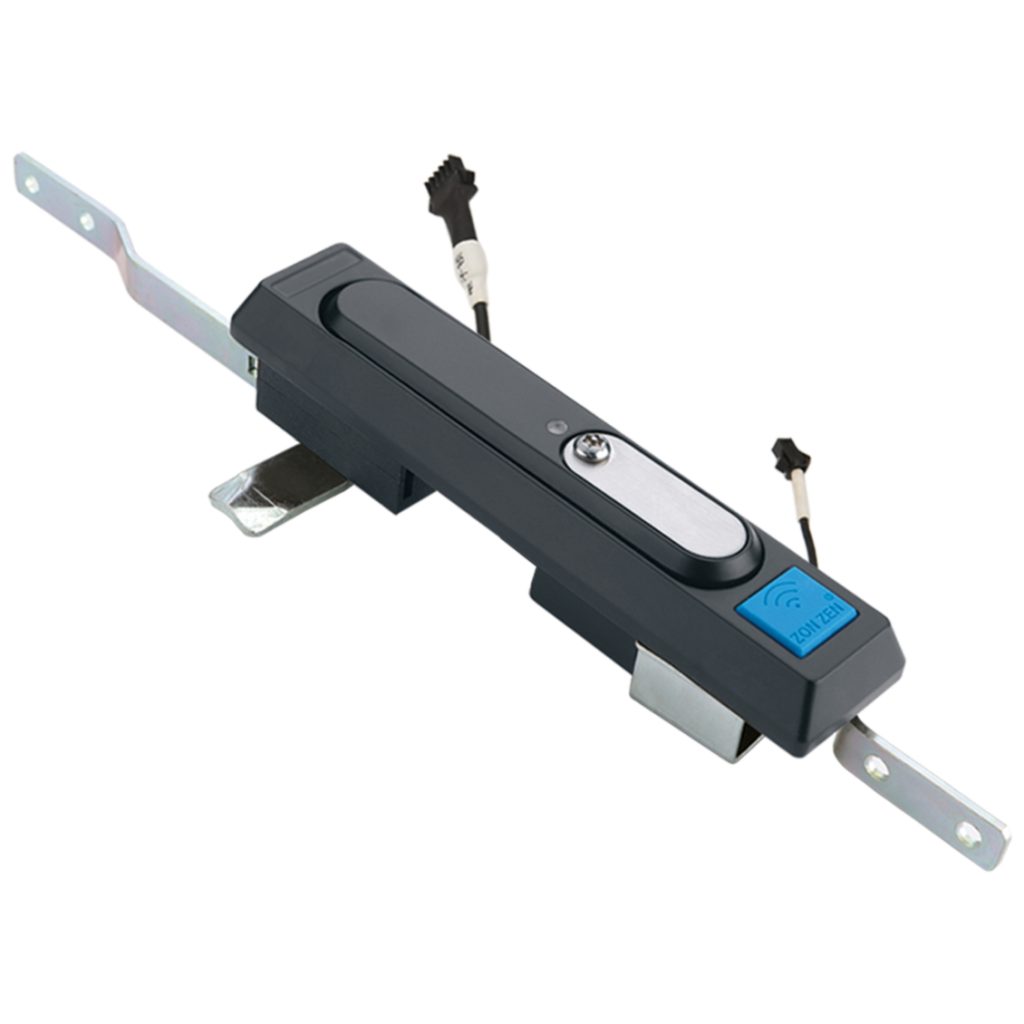
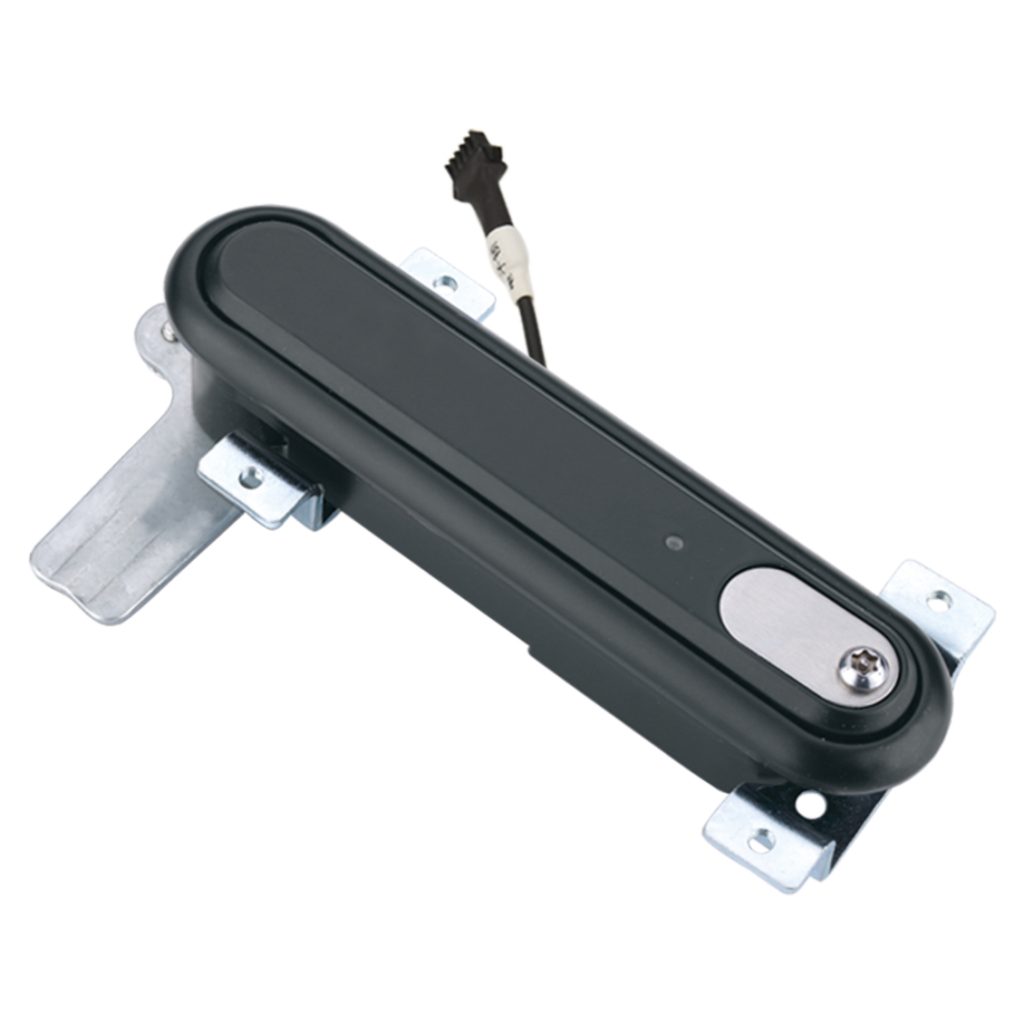
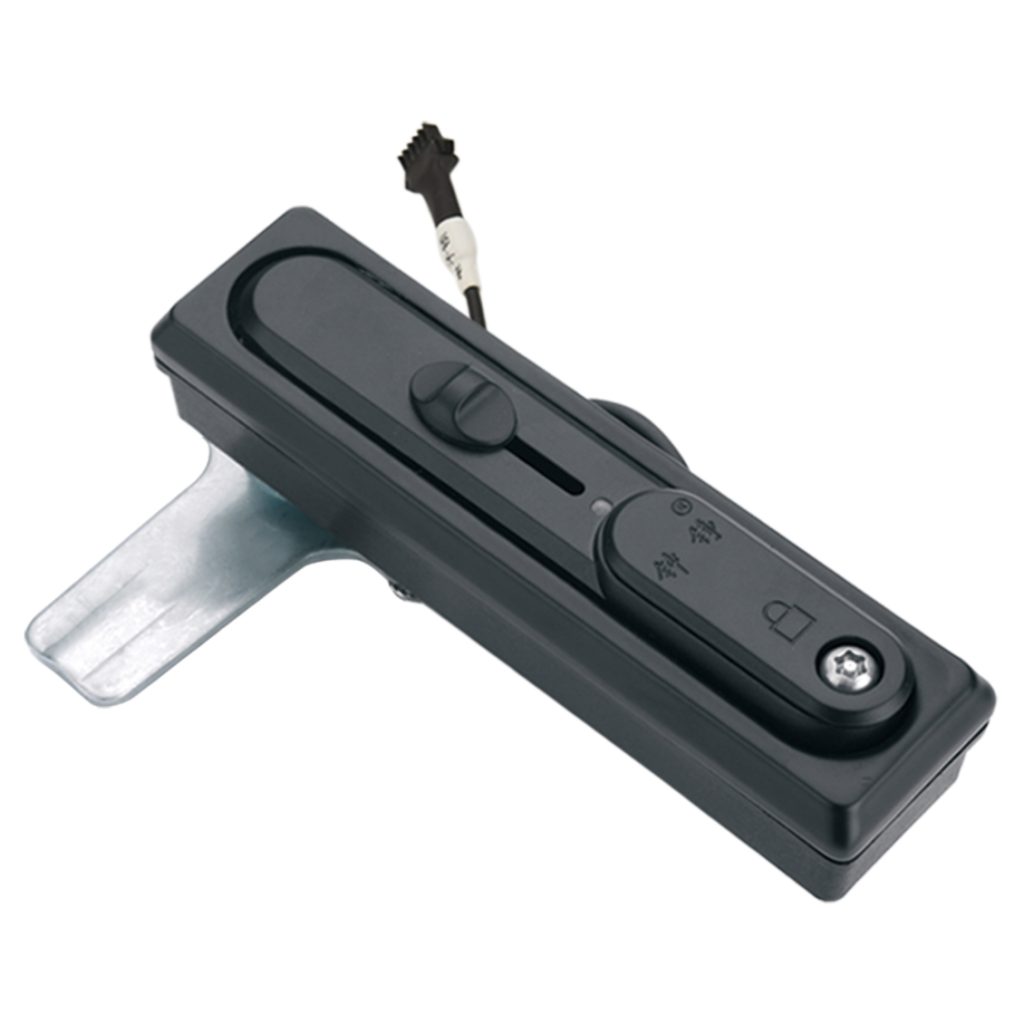
Our Customer service is unsurpassed. We have well trained customer service representatives that are ready to help you with your next project be it large or small.
Our R&D team keeps developing new items for customers all over the world to ensure that we keep the flow of new hot selling point. If you have any questions or suggestions, please do not hesitate to contact us for further assistance.